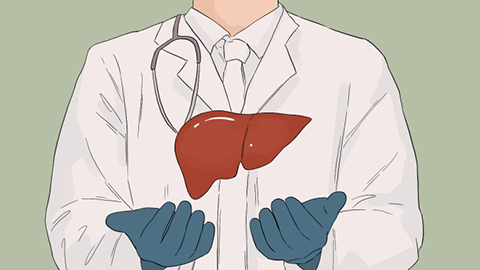What are the symptoms of poor liver health?
Generally, poor liver health can present various noticeable symptoms, commonly including loss of appetite, yellowing of the skin, pain in the upper right abdomen, fatigue, and darkened urine. If discomfort symptoms appear, prompt consultation at a reputable hospital for treatment is recommended. Detailed analysis is as follows:

1. Loss of Appetite
The liver is an important digestive organ that secretes bile to assist digestion. When liver function declines, reduced bile secretion affects the digestion of foods such as fats, leading to loss of appetite. Patients often develop aversion to greasy foods and may experience discomfort such as abdominal distension and nausea after eating. Long-term effects may include weight loss.
2. Yellowing of the Skin
The liver metabolizes bilirubin in the body. When liver function is impaired, bilirubin cannot be properly metabolized and excreted, accumulating in the body and causing yellowing of the skin, known as jaundice. In addition to the skin, the whites of the eyes may also turn yellow, and the more pronounced the symptoms, the more severe the liver damage typically is.
3. Upper Right Abdominal Pain
The liver is located in the upper right abdomen. When inflammation, enlargement, cysts, or stones occur in the liver, these conditions can irritate surrounding tissues and the liver capsule, causing upper right abdominal pain. The pain is often dull or distended, and some patients may experience sharp pain, which may worsen after physical exertion or consumption of greasy foods.
4. Fatigue and Drowsiness
The liver participates in energy metabolism. When liver function declines, the body's energy production becomes insufficient, and metabolic waste cannot be promptly excreted, affecting the general condition and causing fatigue and drowsiness. Even after rest, patients may still find it difficult to relieve the feeling of fatigue and may easily feel physically drained during daily activities.
5. Darkened Urine
Abnormal liver function can hinder bilirubin metabolism, with some bilirubin excreted through urine, causing darkened urine color. The urine may change from a normal light yellow to dark yellow, or even tea-like in color, and this change usually persists and does not rapidly improve with increased water intake.
In addition, some patients may also experience symptoms such as bleeding gums, abdominal distension, and ascites. If any of the above symptoms are noticed, timely medical consultation is advised to assess liver condition and receive targeted treatment.










